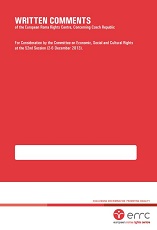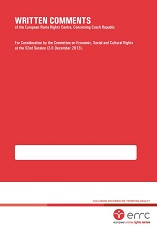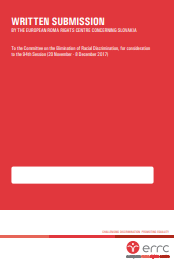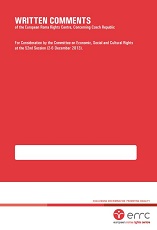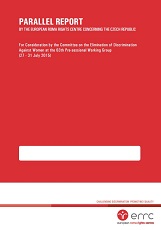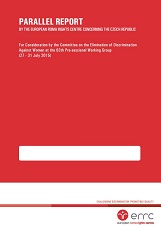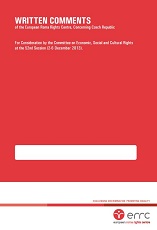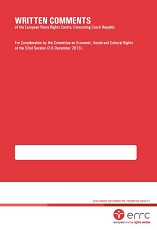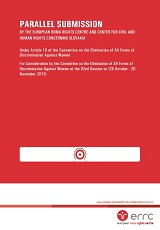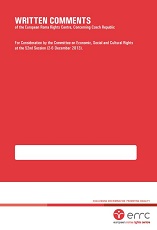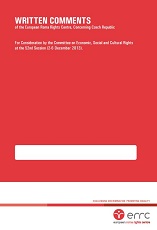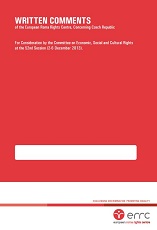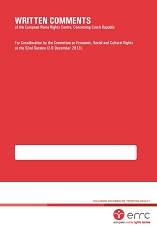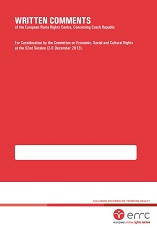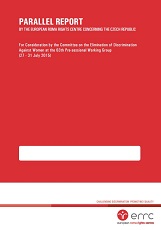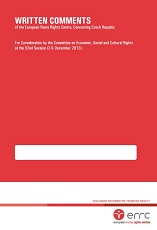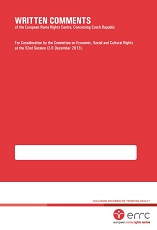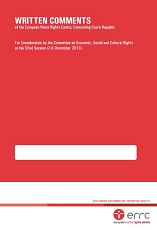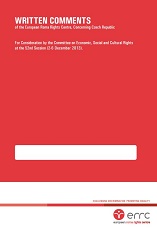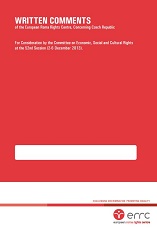
WRITTEN COMMENTS of the European Roma Rights Centre Concerning Serbia (For Consideration by the Human Rights Council, Working Group on the Universal Periodic Review, of the 29th Session January–February 2018)
WRITTEN COMMENTS of the European Roma Rights Centre Concerning Serbia (For Consideration by the Human Rights Council, Working Group on the Universal Periodic Review, of the 29th Session January–February 2018)
Keywords: Serbia; Roma rights; human rights; Roma children; education; Roma women; illiteracy; ethnic discrimination; birth registration; segregation; discrimination;
The European Roma Rights Centre (ERRC) submits this parallel report to the Council Working Group on the Universal Periodic Review reporting country-specific information on issues affecting Roma in Serbia that raise questions under the Covenant on Civil and Political Rights (CCPR). The present report describes the current situation regarding serious human rights abuses of Roma in Serbia – school segregation, ethnic discrimination and lack of birth registration. The ERRC respectfully submits its written comments concerning Serbia for consideration by the Covenant on Civil and Political Rights (CCPR) at its 29th working group session, which will be held from January to February 2018. The ERRC has undertaken regular monitoring of the human rights situation of Roma in Serbia and this report reflects the current priorities in our work in Serbia. According to current official estimates, Roma in Serbia make up approximately 2.05%2 of the total population or 147,604 Roma. This makes Roma the second largest minority after Hungarians. However, a verified and accurate count remains elusive. Unofficial sources suggest that the number of Roma in Serbia is significantly higher, ranging between 250,000 to 500,000. In addition to the autochthonous groups, an estimated to 50,000 Roma fled during and after the conflict in Kosovo to Serbia; only half of whom registered as internally displaced persons (IDPs). However, it is not known if all of them remained in Serbia or left for destinations in Western Europe. Furthermore, thousands of Roma have been returned to Serbia from Western European countries in the last years as failed asylum seekers; including Roma who were originally from Kosovo. Roma are the youngest ethnic group in Serbia. The average age is 27.5 years, compared to 40.2 years among the general Serbian population. According to UNICEF, the primary school completion rate for non-Roma children is 94.5% and the transition rate to secondary school is 96.5%, while for Roma children the primary school completion rate is considerably lower - 63%, while the numbers for secondary school for Roma youngsters is even lower - 55.5%. Illiteracy rates range between age groups from 13.7% amongst adolescents to 57.2% among the elderly. Romani women are extremely disadvantaged when it comes to education achievements; illiteracy is estimated to reach up to 80%.
More...
